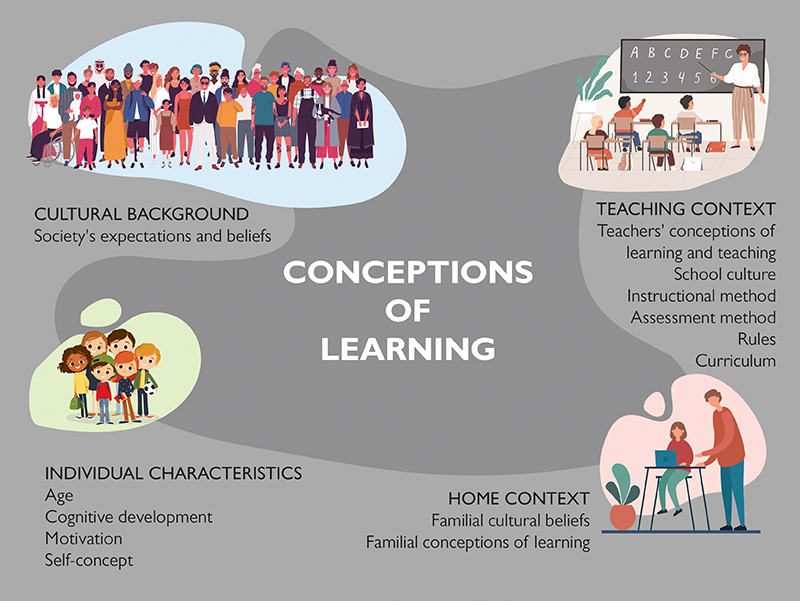The way we perceive the learning process influences the way we approach learning tasks and thus the quality of our learning outcomes. As we saw in a previous article, adults face six different conceptions of the learning process. The Australian academic Carole Steketee has identified the factors that influence children’s perception of the learning process, and these factors may also be partly responsible for the conception of the learning process among adult learners.

Cultural background
- Society’s expectations and beliefs
Teaching context
- Teachers’ conceptions of learning and teaching
- School culture
- Instructional method
- Assessment method
- Rules
- Curriculum
Individual characteristics
- Age
- Cognitive development
- Motivation
- Self-concept
Home context
- Familial cultural beliefs
- Familial conceptions of learning
Source: Steketee, Carole. N. (1996). Conceptions of learning held by students in the lower, middle and upper grades of primary school.
Related articles:
- 6 Conceptions of Learning… Which One Is Yours?
- The Learning Process: 6 conceptions
- From Surface to In-Depth Learning
- The 3 Speeds of Thought
- Cognitive Bias: When Our Brain Plays Tricks On Us
- Metacognition in 3 Questions
- Metacognition 101
- Develop your Metacognitive Skills
- 8 key elements of learner engagement
- The Importance of Emotions in Learning
- 8 Types of Memory… to Remember!
Author:
Catherine Meilleur
Creative Content Writer @KnowledgeOne. Questioner of questions. Hyperflexible stubborn. Contemplative yogi.
Catherine Meilleur has over 15 years of experience in research and writing. Having worked as a journalist and educational designer, she is interested in everything related to learning: from educational psychology to neuroscience, and the latest innovations that can serve learners, such as virtual and augmented reality. She is also passionate about issues related to the future of education at a time when a real revolution is taking place, propelled by digital technology and artificial intelligence.







Leave A Comment